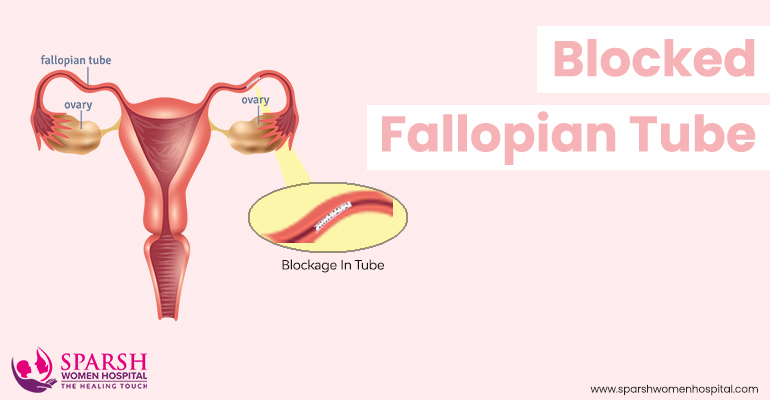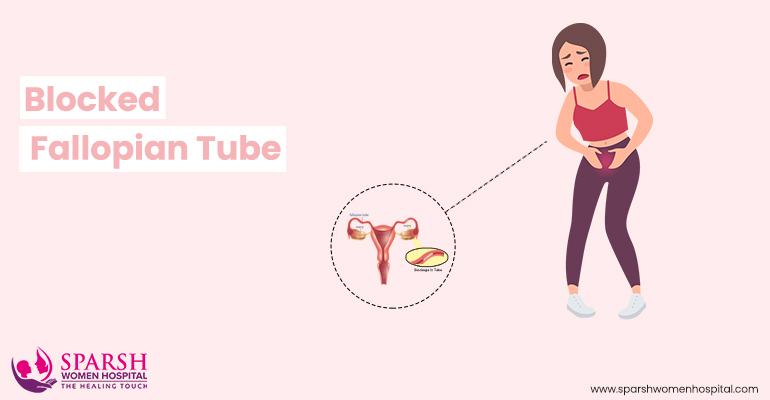
blockage in the Fallopian tubes is one of the causes of infertility problems in Females. In Blocked fallopian tubes, the process of sperm integration with the ovum is not able to permit. Hence it makes fertilization not possible. Fallopian tubes can be also termed as oviducts, uterine tubes, as well as single salpinx or salpinges.
What exactly is a Fallopian tube?
The fallopian tubes, furthermore identified as uterine tubes, are uterine appendages that are layered from the inside with ciliated very simple columnar epithelium and attach the female ovaries to the uterus via the uterotubal junction.
It allows eggs to flow from the ovaries to the uterus. The parallel tissue in non-mammalian vertebrates is known as oviducts, according to IVF doctor, Dr. Monika Sharma at the Sparsh IVF hospital.
The fallopian tube's primary function is "Fertilization". The tube allows the egg to move from the ovary to the uterus. When an oocyte begins to develop in an ovary, it is encapsulated in a collection of cellular material known as an ovarian follicle.
Approximately 20% of female infertility is related to blocked Tubal causes. Distal tubal occlusion (which affects the end of the tube leading to the ovary) is frequently involved in the development of hydrosalpinx and is frequently caused by Chlamydia trachomatis.
Blocked Fallopian Tubes Symptoms
Blocked Fallopian Tube Symptoms, Some women may experience symptoms such as pelvic or belly pain. This pain may occur regularly, around the time of their period, or it may be constant, According to IVF Specialist, Dr. Monika Sharma at Sparsh Women Hospital.
The following are some of the most common blocked Fallopian tube symptoms:
- Pelvic ache.
- Agonizing intercourse.
- Distressing urination.
- Unpleasant bowel motions.
- Extreme stomach pain.
- Low back pain.
- Severe menstrual periods or spotting between menstrual periods.
- Exhaustion.

Blocked Fallopian Tubes Causes
The female reproductive system consists of the ovaries, uterus, and fallopian tubes. Causes of Fallopian tubes that become blocked for a range of reasons, which include:
- Pelvic infection
- Bursting of Appendix
- Having sexually transmitted diseases, like gonorrhea or chlamydia
- Endometriosis, a condition during which the womb lining grows outside of the uterus.
- Abdominal surgery
- Hydrosalpinx, swelling, and fluid at the end of a fallopian tube
Blocked Fallopian Tubes Diagnosis
Blockages in the fallopian tubes or Blocked Fallopian Tubes can be difficult to detect. Since the tubes can open and close, it is not always clear whether they are blocked or closed.
To diagnose blocked fallopian tubes, three tests are used:
- An X-ray test called hysterosalpingogram or HSG in which A doctor injects a harmless dye into the womb that flows into the fallopian tubes and its stain is visible on an X-ray. If the fluid does not flow into the fallopian tubes, a blockage may exist.
- Sonohysterogram - an ultrasound test, This test is similar to the HSG test except that it uses sound waves to create a picture of the fallopian tubes.
- Laparoscopy, in which a surgeon makes a small cut is made in the body and inserts a tiny camera to capture the pictures of the fallopian tubes from the inside.
Blocked Fallopian Tubes Treatment
In Blocked Fallopian Tubes Treatment, blockage in the Fallopian tube has generally been treated with a fallopian tubal surgical procedure (tuboplasty), to restore patency to the tubes and thus possibly normal function.
Surgically opening blocked fallopian tubes may be possible. however, this is dependent on the extent of the scar tissue and the location of the blockage.
The main objective of surgery is to open the fallopian tube using one of the mentioned methods below:
- Removal of scar tissue
- On Fallopian tube's outside make a new opening.
- Make a new opening in the Fallopian tube from the inside
- Laparoscopy - Most surgeons will carry out this procedure
An IVF or in-vitro fertilization is a popular modern treatment method because it is less expensive, less invasive, and produces quick results which are utilized more frequently as compared to surgery told Dr. Monika Sharma at the Sparsh IVF and Infertility treatment center.
For more information contact us @ info@sparshwomenhospital.com,
+91-8698634445



Post Your Comment